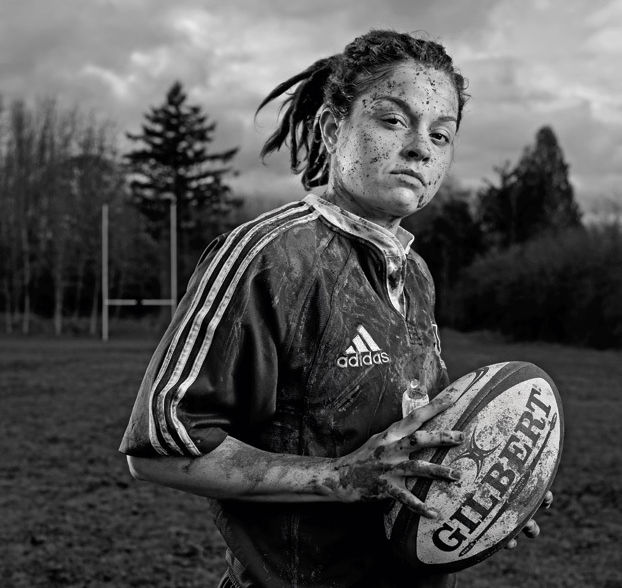The Rugger

Image: Daniel Root
In the summer of 2016, for the first time in 92 years, men’s and women’s rugby will be included in the Olympic Games. San Juanita Moreno, the scrappy, high-scoring outside center on Portland’s premier women’s team and a member of the US national team, talks about what it takes to be a rugger—and what playing has taught her.
Even though I grew up in a small town in Eastern Oregon, I always knew I was a competitor. But I spent my whole life feeling like I was doing things that I wasn’t supposed to be doing. I go to the gym and people stare at me because they think my body’s built funny: I take up just as much space as a dude my size, but people think it’s too much. With rugby, all these natural movements that my body does all of a sudden aren’t weird.
In a rugby match, there’s something that connects you psychologically and emotionally—the physical contact and blood and sweat, the whole deal. You’re really looking at and touching the people you’re playing with all the time—you’re totally exposed. There aren’t many other sports where women go 100 percent against each other like that.
A contact sport is awkward for lots of girls. Not only do girls not grow up playing a contact sport, but how many girls grow up even watching it all the time? They don’t even know what contact is supposed to look like, so how are they going to mimic it?
Women don’t train right. Your knee gets injured when you don’t keep yourself centered—anytime your knee isn’t directly above your ankle, it’s vulnerable to get torn. And because rugby’s so intense, if you don’t have that perfect muscle memory, your knees are very vulnerable.
I got [a red card] for a dangerous tackle before. But once you’ve picked someone up, it seems logical—where else do I put them but on their head?
You can’t leave the field and come back unless you’re bleeding. When you get off the field, you have moments to stop the bleeding. We don’t really care about skin or antibacterial, none of that jones—you just stop it from bleeding as quickly as possible.
The Premier League is supposed to highlight the sport and attract more people. I mean, yeah, we lost all of our games, but they were good, exciting games, and people wanted to come watch them. Because in the years before, what, we creamed Seattle three times? Who wants to see that again? You’ve got to get people excited about rugby—before you can ask them to support it, they have to like it.
I’ve got all the tricks for getting to the front of the airport security line. I can get to PDX 15 minutes before my flight leaves. You act like you know someone ahead of you. And I’ve lost my ID a million times, and I tell the team, “Just leave without me—I’ll be there in 20 minutes.”
You can’t really afford to do anything else during the season when you have to pay an average of a couple hundred dollars a week to play. It’s always a relief when we just have to pay for our flight.
Playing at the US level, we’re not professional athletes, yet in so many ways we’re struggling toward that lifestyle. It forces you to have a split life, and keep a career, but whenever you can, you get to be this different person. That’s why I think so many women find that rugby is their calling—because it’s the real you on the field.




